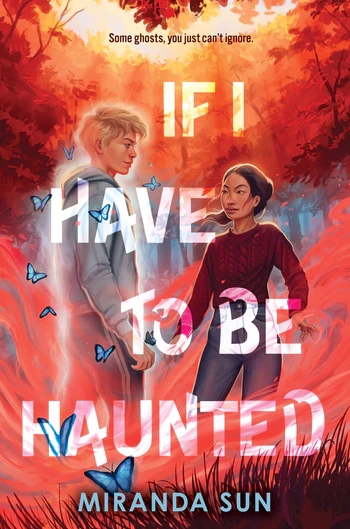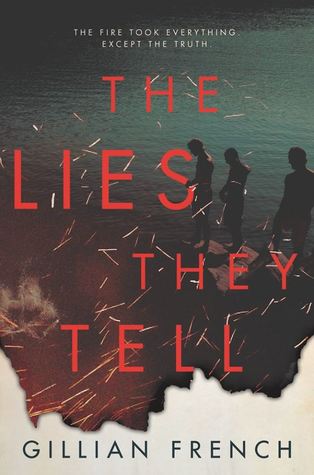 Bright We Burn by Kiersten White
Bright We Burn by Kiersten White
My rating: 3 of 5 stars
Author: Kiersten White
Genre: YA Historical Fiction
Publisher: Delacorte Press
Year of Publication: 2018
Main Characters: Lada (3/5)—She’s reckless, she’s angry, and she’s just as conniving as ever. There were moments when she seemed a little more reasonable and human than normal, but she usually followed them up with something harsh and cruel for balance.
Radu (4/5)—After being torn between two lives for so long, Radu agonizes over making a choice. Although he seems much more like himself than in Now I Rise, we also see that his time in Constantinople has changed him forever.
Secondary Characters: I can’t really discuss any of them without letting out a flood of spoilers, so I’m going to stick to Mehmed. Mehmed is manipulative, but also very lonely; his choices in this last installment show just how little is left of the boy we met in And I Darken.
Pacing: The first two books dragged a bit, but this one felt like each scene was vital and interesting. It was a refreshing change!
Accuracy of Publisher’s Synopsis: The synopsis was a little misleading. It makes everyone’s endeavors sound a lot more hopeful than they turn out to be. Trust me, all three main characters are anxiety-riddled messes who have an inordinate amount of close brushes with death due to nothing other than their own foolishness.
Resolution: This book ended well enough, but it was lacking the “wow” factor that has pretty much defined these characters and this series. I’ll admit to being a little disappointed.
The Good: First and foremost, the only character I truly connected with in this whole series—my poor, precious Radu—gets the ending he deserves. For me, White could have cut out everything else and I would have been entirely satisfied just reading Radu’s perspective.
But that’s not to say that I didn’t enjoy the rest of the book, much to my surprise. For starters, the pacing of this installment blew the rest of the series out of the water. In the first two books, my interest would wane with each Lada chapter and gradually plummet until I was in Radu’s head again. In this novel, I actually grew to enjoy Lada’s narration for a while, if only because it was fascinating to read a character who viewed gruesome tasks with as much apathy as if they were tying their shoes.
Unlike the previous books, this one started flying by after just a few chapters. Very early on, Lada, Radu, and Mehmed are once again drawn together by the inexplicable force that forever binds them, and thus everyone in each of their orbits must follow. As old memories resurface, wounds reopen, and the allies of each main character begin to clash spectacularly. It was startling to me to see them all thrown together and remember everything that they’ve endured because of and for each other. Sometimes it’s hard to remember how young these characters who are leading countries into war and staring death in the face every day really are.
There are plenty of things about this book that I could nitpick and turn my nose up at, but overall, I liked it more than I thought I would. I even toyed with the idea of rating it with FOUR stars! But there were some things I couldn’t look past that I’ll get into next.
The Not So Good: These aren’t necessarily criticisms, so take the heading on this section with a grain of salt. Without any of the events below, the novel would not have been as interesting, so please don’t think that these are all things I would undo about how everything played out.
So basically, everyone (outside of the main characters) that you’ve been afraid would die the whole time? Yeah…they pretty much all die in this book. There’s one that still particularly stings, but I like to think that death accomplished something for the course of the book overall. Maybe? Even if the purpose was just for that person to no longer be one of the chess pieces on the board.
A few notes on Radu’s love life, riddled with spoilers: (view spoiler)[ It really took Mehmed twenty years to realize that “Radu’s daughter” isn’t actually Nazira’s? Like…he clearly realizes that Radu is gay and that Cyprian is the key to Radu’s heart, so where did he think Theodora came from? And let’s not forget the point when Mehmed has sex with Lada (which is so subtle that I didn’t even realize happened until much later), and then propositions Radu just minutes after! Words can’t express how proud I am of Radu for having the strength to turn down the man he’s spent half his life wanting and realize the difference between lust and love. (hide spoiler)].
I may be one of few, but I actually liked Mehmed in the first book. However, my liking of him sharply declined after he married his first wife (who doesn’t even seem to exist in this book?). This installment shows us a completely different person from the boy who so reluctantly took the throne years earlier. The only consistency is his endless quest for Lada’s affection, which is forever and always in vain. Mehmed resents not having a personal life, but when he sees people he knows personally, he mistreats them and abuses their trust. His affections are fickle and come from a place of desperation and possessiveness rather than love and concern. I lost all respect and sympathy for him within a few chapters.
Lada is still the most ruthless, heartless, but oddly sentimental mess I’ve ever read about, and her prickly personality is just as much of a blessing as a detriment. Her irrational war tactics are so enigmatic that an organized military like the Janissaries has no hope of comprehending them, which ends up being her only advantage. But here’s the real problem with Lada: she has a one-track mind full of selfish pursuits and an endless line of loyal followers to pay for her mistakes. Lada is so blinded by her unwavering love of a country she hasn’t lived in for almost a decade that she’s willing to sacrifice her most indispensable people for a cause that matters only to her. I would’ve thought she’d develop some sort of guilt for forcing her nearest and dearest to forfeit their lives, but no—Lada doesn’t do guilt, because that would mean admitting when she’s wrong. I had a hard time watching some of those characters pay the cost of Lada’s missteps, and I truly felt their losses. But beyond all of that, there are a couple of massively foolish mistakes she makes on a personal level that I’ll never stop being angry about. I’ve liked her less with each book that came through my hands and I’m sorry to say that this finale continues the trend.
Overall Impression:This trilogy was not the best I’ve ever read, but this book was the best of the series.
Would I recommend it? Yes, surprisingly enough. I wasn’t the biggest fan of And I Darken or Now I Rise, but this book is a step up and provides a decent enough ending for the series.
View all my reviews
 Find Him Where You Left Him Dead by Kristen Simmons
Find Him Where You Left Him Dead by Kristen Simmons

















